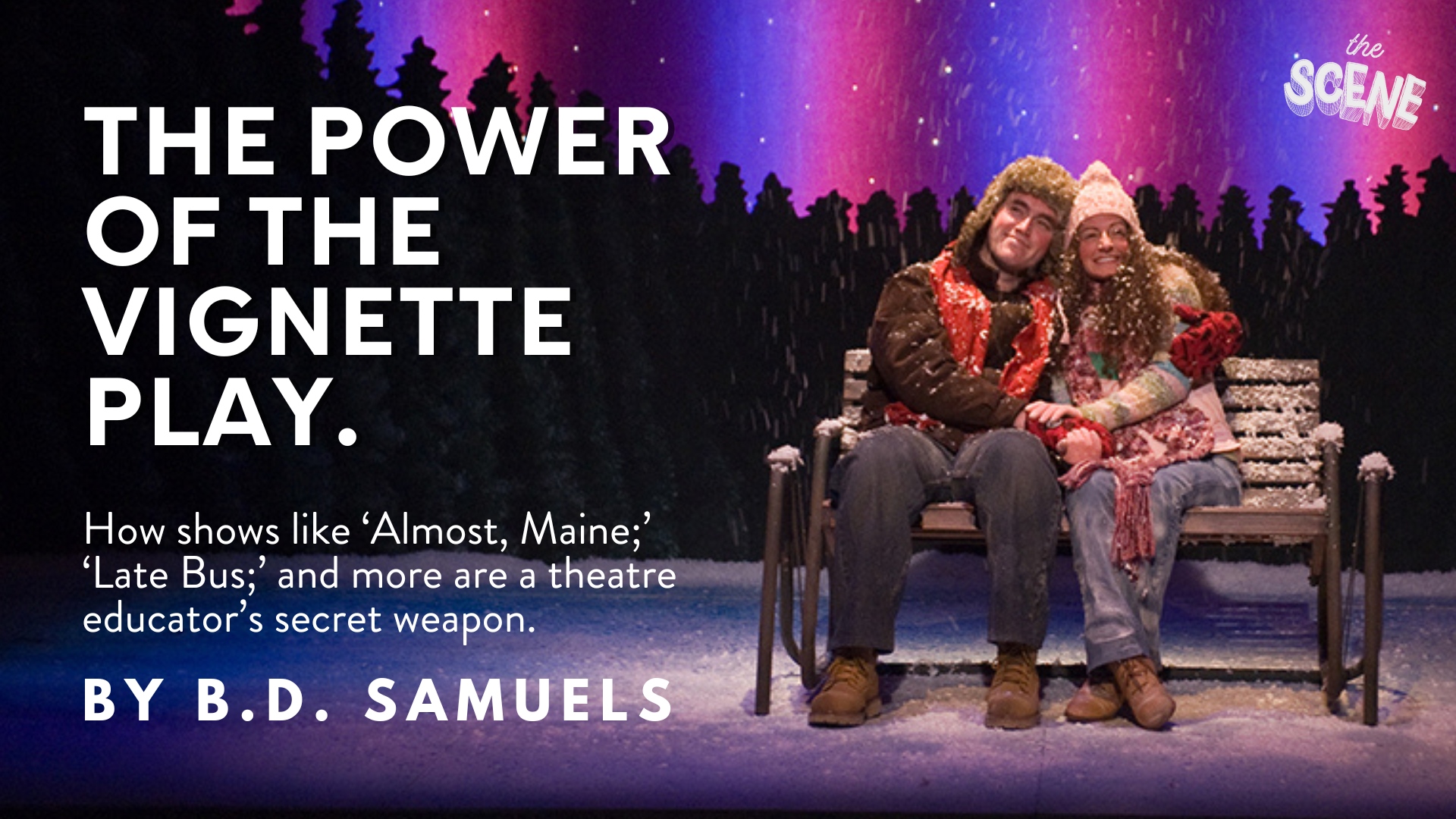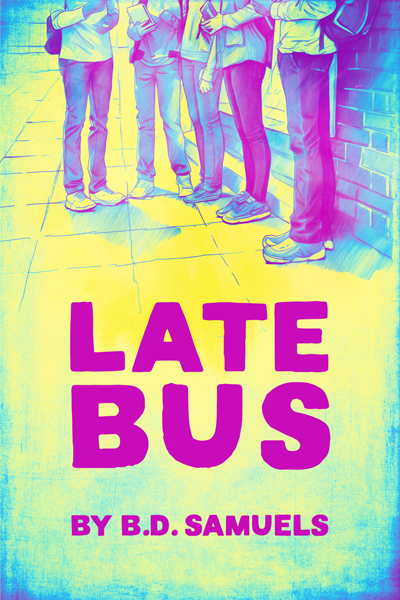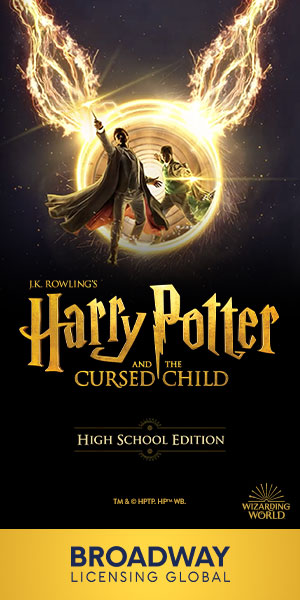How shows like ‘Almost, Maine;’ ‘Late Bus;’ and more are a theatre educator’s secret weapon.
by B.D. Samuels, Guest Writer for The Scene
We’re approaching summer, which means theatre teachers everywhere are looking forward to some time to relax and some time to find new plays to bring back to school. There are some plays that theatre teachers come back to time and time again, whether that’s in the classroom or in a full production. ‘Almost, Maine‘ has remained one of the most-produced titles in North American high schools for over a decade now, topping this list for the majority of that time. What is the key to its popularity and success? Look no further than the power of the vignette.
John Cariani’s ‘Almost, Maine’ is a play comprising nine independent, interlocking scenes or vignettes. Each of the nine scenes functions like a self-contained mini-play, with need, conflict, rising action, climax, and resolution. The play is a poignant, charming, and hilarious look at how love works or tries to, and all of the characters have strong, playable arcs.
Recently, Playscripts published my new play ‘Late Bus,‘ which functions in a similar way to ‘Almost, Maine’ but in a specifically high school setting. In ‘Late Bus,’ over the course of a school week, a collection of high school misfits and mavericks with no other way home wait to be picked up after their after-school activities. Each scene is a new day, Monday to Friday, and can stand alone as a self-contained one-act of sorts. But taken together, like in Cariani’s play, the scenes become a whole greater than the sum of its parts.
Just how is the vignette play a powerful tool for theatre educators? Let’s break it down.
- They Translate Beautifully to the Classroom: Because each vignette operates essentially as a one-act, many of these scenes are perfect material for a scene study class. Scenes are usually around ten or fifteen minutes, a good classroom length. Moreover, students and teachers can skip the challenge of where to cut a scene when picking from a differently structured play.
- Democratize the Process: In vignette plays, the length, depth, and importance of each scene tend to be comparable. Every student involved in a production gets a nice slice of the pie and a good chunk of material to work on, making for ensemble pieces that foster community and teamwork.
- Flexible Casting: Because of the nature of how they’re written, vignette plays are often flexible enough to allow for relatively small or relatively large cast sizes. Generally, all of the characters in the play are never on stage at the same time, so a production could easily double-cast if needed. On the other hand, without doubling, these casts easily accommodate up to ten or more actors.
- A Complete Arc: Actors in plays like ‘Almost, Maine,’ and ‘Late Bus’ get to do something that generally not all actors in a play get to do – they get to work on a complete character arc. Because of the comprehensive nature of each scene, actors get to experience needs, obstacles, conflicts, and change within the span of their individual scenes. It’s a fun and exciting challenge and makes for excellent scene study.
Other titles that come to mind when thinking about the vignette play (some more suitable for high school students than others) are David Ives’s ‘All in the Timing,’ Eve Ensler’s ‘The Vagina Monologues,‘ Ntozake Shange’s ‘For Colored Girls Who Have Considered Suicide,‘ Kennan Scott II’s ‘Thoughts of a Colored Man,‘ and ‘Spoon River Anthology‘ by Edgar Lee Masters and adapted for the stage by Charles Aidman.
These plays, like ‘Almost, Maine’ and ‘Late Bus,‘ use the vignette format to delve into various themes and stories, creating a mosaic of experiences that collectively provide a rich and multifaceted exploration of their central topics. These are a great place to begin if you need somewhere to start for your summer reading list. And if you can think of other plays that fit the vignette play category, please share!
__
B.D. Samuels is the author of ‘Late Bus,’ a new play now available from Playscripts.










